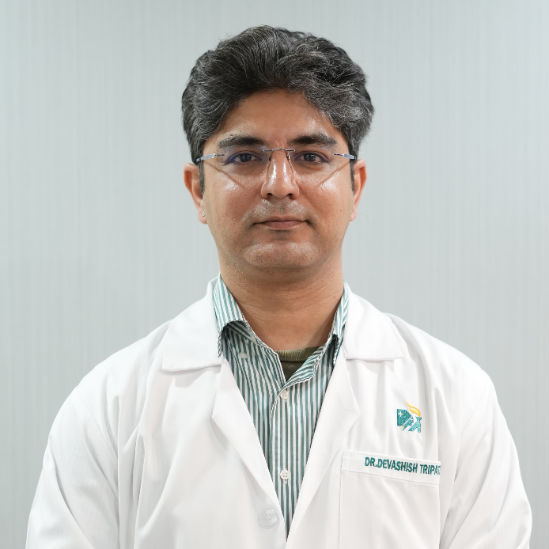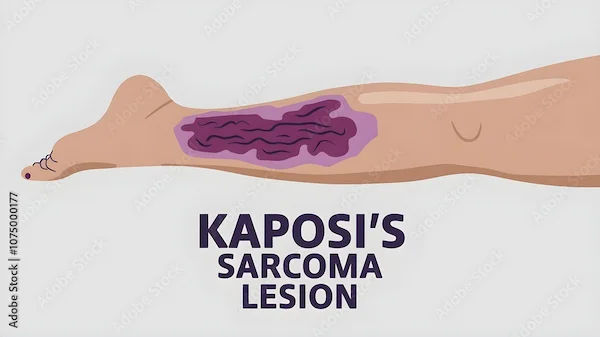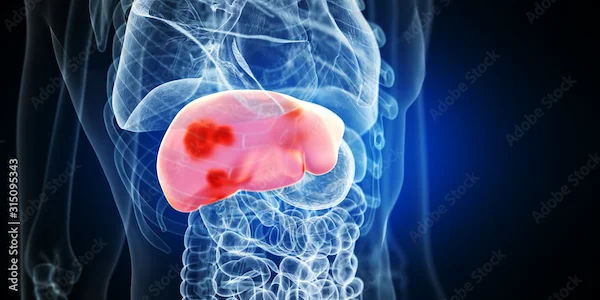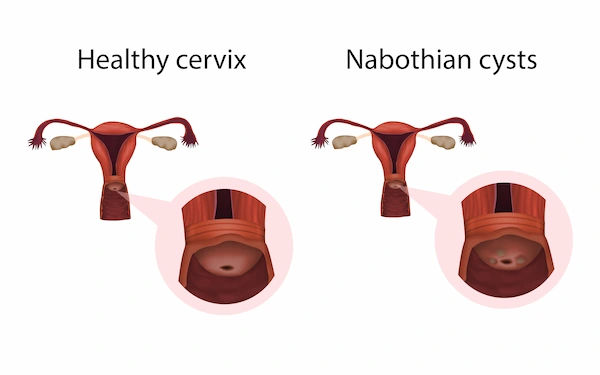Your Guide to Precision Oncology: Personalised Cancer Treatment
Explore precision oncology, a personalised cancer treatment approach that tailors therapy to your tumour’s genetic profile. Learn how biomarker testing, targeted therapy, and immunotherapy work to improve outcomes.

.webp?tr=q-80,f-webp,w-350,dpr-2,c-at_max 700w)
Introduction
For decades, cancer treatment often followed a similar path for many patients: surgery, chemotherapy, or radiation. While effective, this approach operated on a broad-strokes principle. Today, a revolutionary shift is transforming cancer care: precision oncology. This isn't a single drug or technology, but a fundamentally new way of thinking about and treating cancer. Imagine if your doctor could design a treatment plan based not just on the organ where your cancer started, but on the unique genetic blueprint of your tumour. That’s the promise of precision medicine. This guide will demystify precision oncology, walking you through what it is, how it works, and who can benefit. We’ll explore the step-by-step process, from biomarker testing to targeted therapies, and provide a realistic look at its powerful potential and current limitations. Whether you're a patient, a caregiver, or simply curious about the future of medicine, this article will equip you with the knowledge to understand this groundbreaking field.
What is Precision Oncology, Really?
Precision oncology, often used interchangeably with personalised cancer medicine, is a medical approach that tailors treatment to the individual characteristics of a patient's cancer. Instead of categorising cancer solely by its location (e.g., lung, breast, colon), precision oncology dives deeper into the tumour's biology. It seeks to identify the specific genetic mutations, proteins, and other factors (known as biomarkers) that are driving the cancer's growth and survival.
The core premise is simple yet profound: no two cancers are exactly alike. Even cancers that originate in the same organ can have vastly different genetic profiles. What works for one patient's lung cancer might be ineffective for another's because the underlying molecular drivers are different. Precision medicine aims to match the right drug to the right patient at the right time, maximising effectiveness while minimising unnecessary side effects.
How It Differs From Traditional Cancer Treatment
Traditional chemotherapy and radiation are cytotoxic, meaning they kill rapidly dividing cells—a hallmark of cancer cells. Unfortunately, they can also damage healthy, fast-dividing cells in the body, leading to well-known side effects like hair loss, nausea, and low blood counts.
Precision oncology flips this script. Its therapies are designed to be more selective. They specifically target the abnormal molecules or pathways that allow cancer cells to grow and spread. Think of it like this: traditional chemotherapy is a widespread fog that affects an entire area, while a targeted therapy in precision oncology is a smart missile that locks onto a specific target.
The Core Idea: Targeting the Fingerprint of Your Cancer
Every cancer has a unique genetic "fingerprint"—a set of mutations acquired over time. Precision oncology uses advanced diagnostic tests to identify this fingerprint. The goal is to find the "Achilles' heel" of cancer—a specific vulnerability that can be attacked with a targeted drug. This approach has led to remarkable success stories, such as using HER2-targeted drugs for certain breast and stomach cancers or EGFR inhibitors for specific types of lung cancer, fundamentally changing outcomes for these patients.
Consult an Oncologist for the best advice
The Step-by-Step Journey of Precision Medicine
Understanding the process can help patients and families know what to expect. The journey of personalised cancer treatment typically involves several key steps.
Step 1: Biomarker Testing and Tumour Sequencing
The first and most critical step is a biopsy, where a sample of the tumour is obtained. This tissue sample is then sent for biomarker testing, also known as molecular profiling or genomic sequencing. Sophisticated lab techniques, like next-generation sequencing (NGS), scan the tumour's DNA to look for hundreds of potential genetic alterations. Sometimes, a "liquid biopsy"—a simple blood test that detects tumour DNA circulating in the bloodstream—can also be used. This comprehensive testing generates a detailed report of the cancer's genetic makeup.
Step 2: Analysing the Genetic Report
The genetic report can be complex, listing various mutations, amplifications, and deletions. This is where a multidisciplinary team becomes essential. Molecular pathologists, oncologists, and genetic counsellors work together to interpret the results. They distinguish between "driver" mutations (those that fuel the cancer) and "passenger" mutations (those that are just along for the ride). The team’s goal is to identify any actionable alterations—changes for which an approved or investigational therapy exists.
Step 3: Matching Results to Targeted Therapies
Once an actionable biomarker is identified, the oncologist can recommend a corresponding treatment. This could be an FDA-approved targeted therapy specifically indicated for that mutation. If no standard approved option exists, the report might reveal eligibility for a clinical trial testing a new drug that targets the specific alteration. This matching process is the heart of precision oncology, ensuring the treatment strategy is as unique as the patient's disease.
The Powerful Tools in the Precision Oncology Toolkit
The advances in precision oncology are largely driven by two major classes of treatment: targeted therapy and immunotherapy.
Targeted Therapy: Disabling Cancer's Engine
Targeted therapies are drugs that specifically interfere with molecules that are crucial for tumour growth and progression. They are often referred to as "small-molecule" drugs or "monoclonal antibodies."
- Example: Drugs that target the BCR-ABL fusion protein in chronic myeloid leukaemia (CML) have transformed it from a fatal disease into a manageable chronic condition for many.
- Unique Insight: A key advantage of targeted therapy is that it can sometimes be effective across different cancer types. For instance, a drug targeting a specific mutation called NTRK has been approved for any solid tumour (lung, colon, thyroid, etc.) that harbors that mutation, regardless of where the cancer started. This is a true testament to the power of targeting the genetic fingerprint over the organ of origin.
Immunotherapy: Empowering Your Body's Defences
While not always classified strictly under precision oncology, immunotherapy is a highly personalised approach that is often guided by biomarker testing. Instead of attacking the cancer directly, these treatments boost the patient's own immune system to recognise and destroy cancer cells. A key biomarker for immunotherapy is the PD-L1 protein level. Patients with high PD-L1 expression are more likely to respond to checkpoint inhibitor drugs, which "release the brakes" on the immune system.
Who is a Candidate for Precision Oncology?
Precision oncology is now a standard part of care for many common cancers, including advanced lung, breast, colorectal, and melanoma. It is especially considered when cancer is advanced or has returned after initial treatment. However, it's important to have a realistic conversation with your oncologist. Not every patient will have an actionable mutation, and even if they do, the cancer may develop resistance to the targeted drug over time. Discussing the potential for genomic testing for cancer with your doctor is the first step to determining if it's right for you. If your initial treatment isn't yielding the expected results, consulting a specialist, for instance through an online consultation with Apollo24|7, can provide a valuable second opinion on whether precision oncology approaches could be beneficial.
Benefits and Realistic Limitations
Precision oncology offers a range of advantages, but it’s important to understand both the benefits and its realistic limitations.
Benefits:
- Increased Effectiveness: Treatments are more likely to work when they are matched to a specific target.
- Reduced Side Effects: Targeted therapies are generally less toxic than traditional chemotherapy because they spare healthy cells.
- Access to Clinical Trials: Identifying a biomarker can open doors to new and promising experimental treatments.
Limitations:
- Not a Universal Cure: A significant proportion of patients will not have an identifiable, actionable mutation.
- Cancer Evolution: Cancers can develop resistance to targeted therapies, requiring a change in treatment.
- Cost and Access: Advanced genetic testing and targeted drugs can be expensive, and access may vary.
The Future is Now: What's Next in Precision Oncology?
The field is moving at a breathtaking pace. The future lies in combining different targeted agents, using liquid biopsies to monitor treatment response and detect resistance early, and leveraging artificial intelligence to find patterns in complex genetic data that the human eye might miss. Furthermore, research is focusing on targeting harder-to-treat mutations and expanding the success of immunotherapy to more cancer types. The ultimate goal is to make precision oncology the standard of care for every cancer patient.
Conclusion
Precision oncology represents a paradigm shift from a one-size-fits-all model to a truly personalised approach to cancer care. By understanding the unique genetic identity of a tumour, doctors can now select treatments with a higher probability of success, offering new hope to many patients. While challenges like access and drug resistance remain, the progress is undeniable. This field is continuously evolving, with research bringing new discoveries to the clinic at an accelerating rate. The key takeaway is empowerment through knowledge. If you or a loved one is facing a cancer diagnosis, ask your doctor about the role of precision medicine in your treatment plan. Being an informed advocate is a crucial part of the journey. For complex cases, seeking a second opinion from a specialist at a comprehensive cancer center can provide further clarity on the latest personalised cancer treatment options available.
Consult an Oncologist for the best advice
Consult an Oncologist for the best advice

Dr.sanchayan Mandal
Medical Oncologist
17 Years • MBBS, DrNB( MEDICAL ONCOLOGY), DNB (RADIOTHERAPY),ECMO. PDCR. ASCO
Kolkata
Dr. Sanchayan Mandal Oncology Clinic, Kolkata

Dr Gowshikk Rajkumar
Oncologist
10 Years • MBBS, DMRT, DNB in Radiation oncology
Bengaluru
Apollo Clinic, JP nagar, Bengaluru

Dr. Sanchayan Mandal
Medical Oncologist
17 Years • MBBS, DrNB( MEDICAL ONCOLOGY), DNB (RADIOTHERAPY),ECMO. PDCR. ASCO
Kolkata
MCR SUPER SPECIALITY POLY CLINIC & PATHOLOGY, Kolkata

Ms. Hiba Siddiqui
Oncologist
13 Years • BA (Hons), MA, Professional Certification Psycho-oncology, PhD
Delhi
Apollo Hospitals Indraprastha, Delhi

Dr Devashish Tripathi
Radiation Specialist Oncologist
20 Years • MBBS, PLAB, MRCP (UK)- General Medicine, FRCR (Oncology), Certificate of Completion of Training (CCT)- Clinical Oncology
Delhi
Apollo Hospitals Indraprastha, Delhi
Consult an Oncologist for the best advice

Dr.sanchayan Mandal
Medical Oncologist
17 Years • MBBS, DrNB( MEDICAL ONCOLOGY), DNB (RADIOTHERAPY),ECMO. PDCR. ASCO
Kolkata
Dr. Sanchayan Mandal Oncology Clinic, Kolkata

Dr Gowshikk Rajkumar
Oncologist
10 Years • MBBS, DMRT, DNB in Radiation oncology
Bengaluru
Apollo Clinic, JP nagar, Bengaluru

Dr. Sanchayan Mandal
Medical Oncologist
17 Years • MBBS, DrNB( MEDICAL ONCOLOGY), DNB (RADIOTHERAPY),ECMO. PDCR. ASCO
Kolkata
MCR SUPER SPECIALITY POLY CLINIC & PATHOLOGY, Kolkata

Ms. Hiba Siddiqui
Oncologist
13 Years • BA (Hons), MA, Professional Certification Psycho-oncology, PhD
Delhi
Apollo Hospitals Indraprastha, Delhi

Dr Devashish Tripathi
Radiation Specialist Oncologist
20 Years • MBBS, PLAB, MRCP (UK)- General Medicine, FRCR (Oncology), Certificate of Completion of Training (CCT)- Clinical Oncology
Delhi
Apollo Hospitals Indraprastha, Delhi
More articles from Cancer
Frequently Asked Questions
What is the difference between precision oncology and chemotherapy?
Chemotherapy works by killing all rapidly dividing cells in the body, which includes cancer cells but also healthy cells, causing significant side effects. Precision oncology uses targeted drugs or immunotherapy that specifically attack cancer cells based on their genetic features, often leading to greater effectiveness and fewer side effects.
How much does biomarker testing for cancer cost, and is it covered by insurance?
The cost of comprehensive genomic profiling can vary widely. In many cases, especially for advanced cancers, insurance does cover biomarker testing because it is considered a standard of care. However, coverage policies differ, so it's essential to check with your insurance provider and your hospital's financial counsellor beforehand.
Can precision oncology be used for early-stage cancer?
While its most established role is in treating advanced or metastatic cancer, precision oncology is increasingly being studied and used in earlier stages. For example, it can help determine if chemotherapy is needed after surgery for certain breast cancers (using tests like Oncotype DX) or if a targeted therapy can be given before surgery to shrink a tumour.
What happens if my biomarker test doesn't find an actionable mutation?
This is a common scenario. If no actionable mutation is found, your oncologist will recommend the best standard treatments available, which may include chemotherapy, radiation, or surgery. The test result is still valuable information. You may also be eligible for clinical trials exploring new targets.
How long does it take to get results from a genomic test?
The turnaround time for comprehensive biomarker testing can typically range from two to four weeks. It's important to discuss the expected timeline with your doctor so you can plan the next steps in your treatment journey accordingly.




